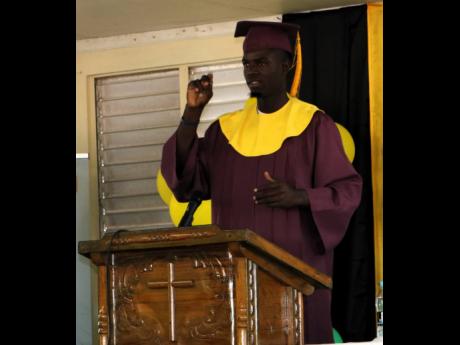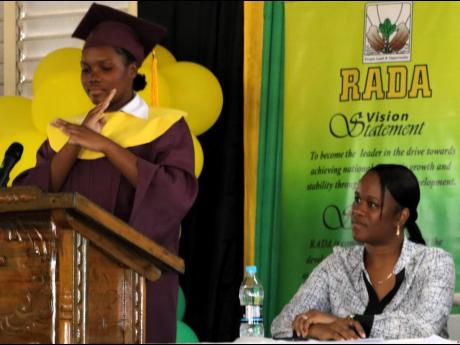Deaf not looking to vote
At age 24, Jerome Pindling has never voted and has no plans to cast his ballot in the upcoming local government elections set for next Monday.
“Governments are always making promises, and you don’t necessarily see it happen, but if they make promises and you see it happening then I will vote, but for the time being, no,” he responded bluntly to a Gleaner query.
“I have never communicated with the Government regarding the deaf, but just in genera,l not much is happening. I would want to see them providing more jobs for the deaf, but I don’t see that happening.”
His colleague, 19-year-old Kimberly Simpson, was equally disenchanted with the political process.
They were named the most outstanding male and female graduates at the graduation ceremony of the Caribbean Christian Centre for the Deaf’s Climate Smart Agriculture Greenhouse Production Training, held recently at the Knockpatrick campus.
“I have seen many people in the Government running for elections saying ‘I will do this and I will do that’, and I have seen that over the years, it is just mouth talk,” Simpson declared. She explained that the tradition of broken promises to the general population is widely accepted as a way of life but that members of the disabled community have even less for which to be thankful.
When it was pointed out that sign language interpreters are used during evening newscasts, Simpson and Pindling acknowledged that they appreciated it but that even more needed to be done.
“It’s a good benefit, but the problem is most times, hearing people watching TV can be distracted and still hear what’s happening, but for the deaf people, it is in a tiny box and you have to zoom in on it because it’s so tiny and it’s a challenge to see. It’s too small. They need to make it bigger so that the signs are clearer and, therefore, easier to follow. I see the signs, but I don’t necessarily catch all the signs because it is so small,” Simpson said.
Another major issue for deaf persons is when persons try to be politically correct when speaking about and to them.
Pindling pointed out that they are sometimes referred to as hearing impaired persons, which is a term that members of the Jamaican deaf community find to be particularly offensive.
“Deaf is the right term,” Pindling declared. “Hearing impaired - we don’t use. It’s just deaf. When you say hearing impaired, it’s more like a medical term often used by doctors, but for us it’s deaf.”


